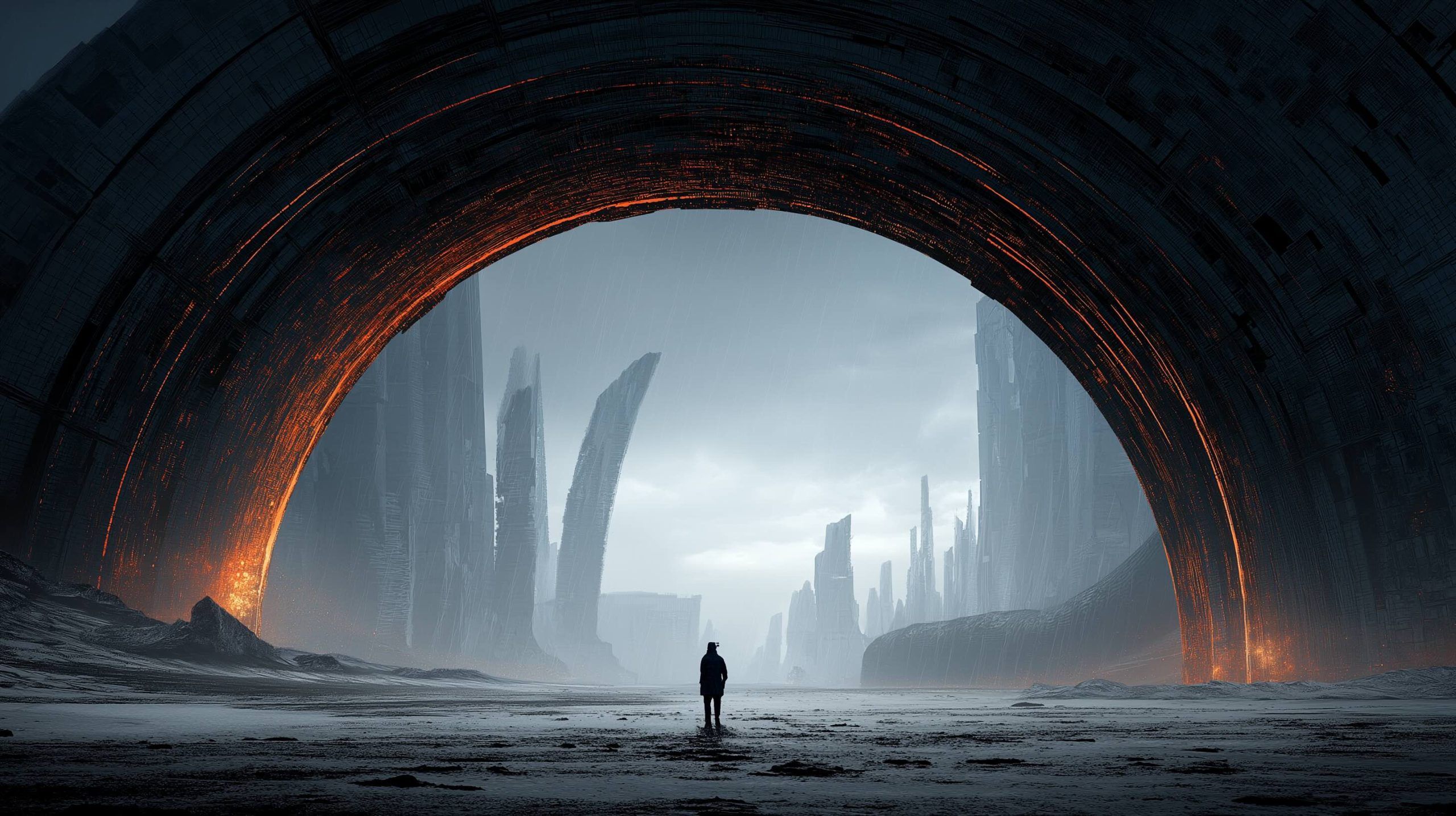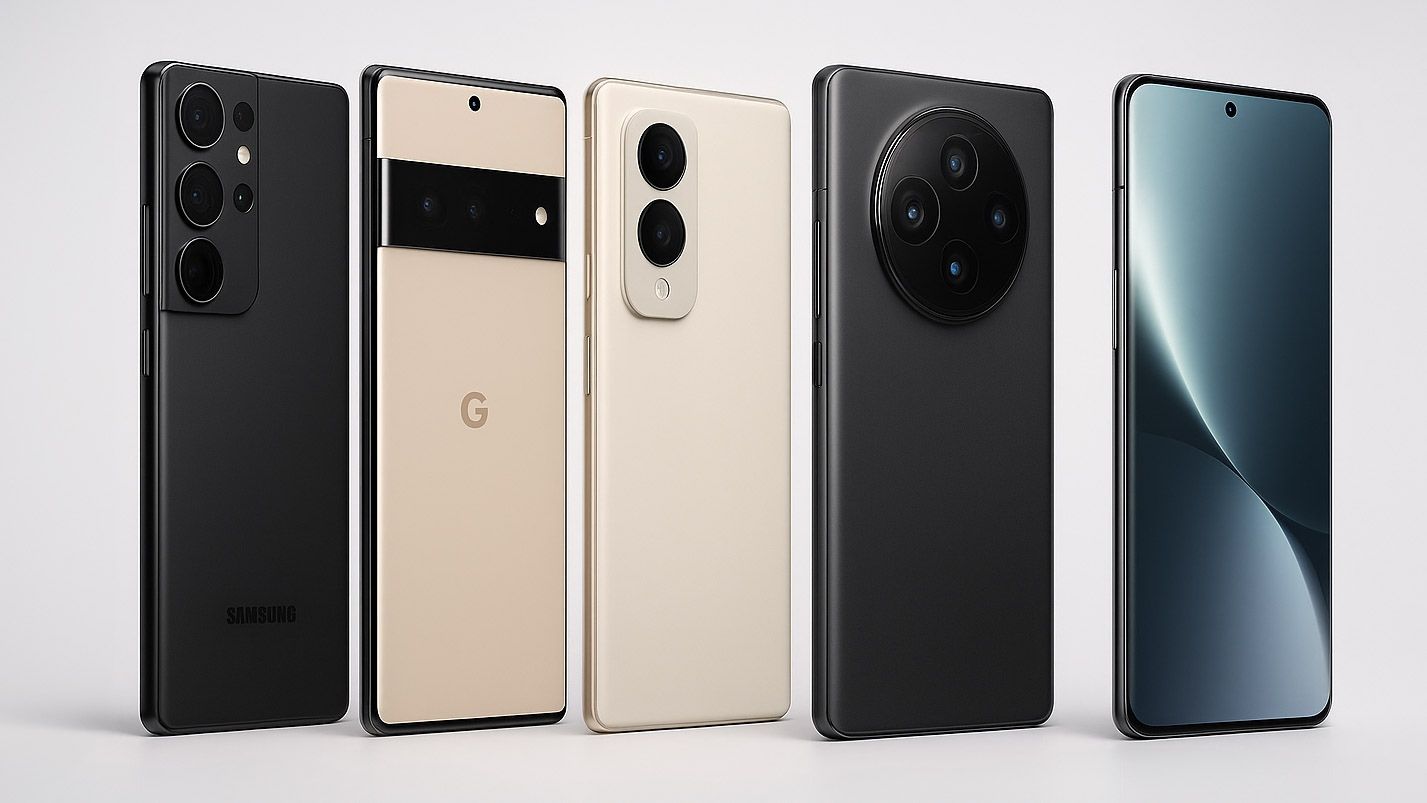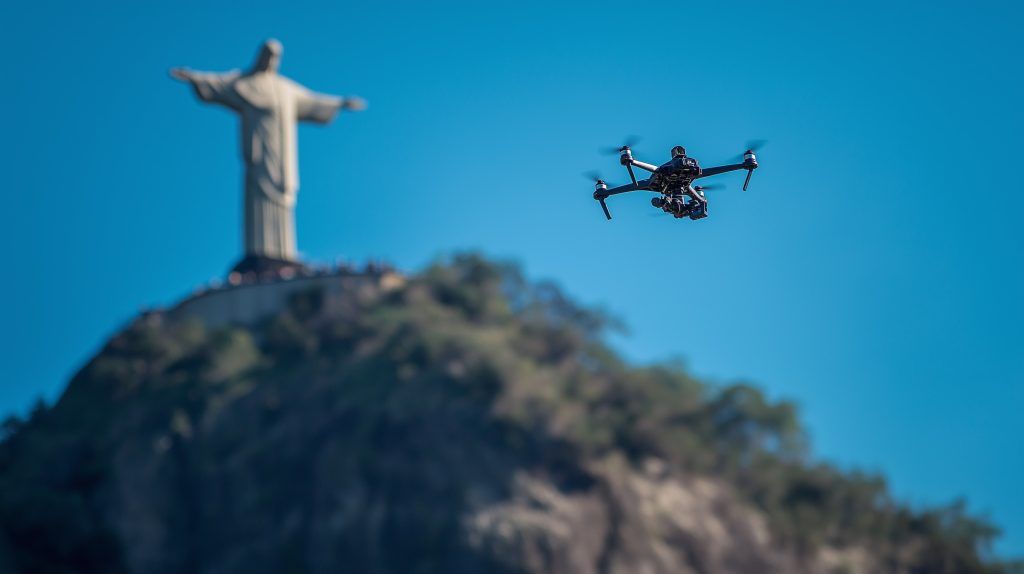- The Nebula Awards were established in 1965 by SFWA founder Damon Knight, with the first ceremony in 1966 when Frank Herbert’s Dune won Best Novel.
- The Nebula trophy, unveiled in 1966, is a block of clear Lucite embedding a spiral galaxy made of glitter and a crystalline landscape.
- In 1966 fantasy works were officially included alongside science fiction after members broadened Nebula eligibility.
- The Nebulas are decided by SFWA’s professional author members, making them a peer award rather than fan-voted.
- The Damon Knight Grand Master lifetime achievement award began in 1975, with Robert Heinlein as the first recipient.
- The Andre Norton Award for Middle Grade/YA was introduced in 2005 to recognize young adult and middle-grade SFF books.
- In 2009 the Best Script category was replaced by the Ray Bradbury Award for Outstanding Dramatic Presentation, with District 9 winning the first award in 2010.
- The Best Game Writing category was added in 2018, with the first winner being the interactive narrative Heroes of the Storm: Lost Viking.
- In 2025 the Nebulas added Best Graphic Story or Comic and Best Speculative Poem, with comics set to crown their first Nebula winners in 2026 for works published in 2025 and poetry launching that year.
- The 59th Nebula Awards (2024) were held on June 8, 2024 in a hybrid ceremony in Pasadena and online, with Vajra Chandrasekera’s The Saint of Bright Doors winning Best Novel.
Introduction
The Nebula Awards are among the most prestigious honors in science fiction and fantasy literature – often described as “the most important of the American science fiction awards” and the SFF equivalent of the Emmys en.wikipedia.org. Established in 1965 by the Science Fiction and Fantasy Writers Association (SFWA), the Nebulas recognize outstanding writing in speculative fiction across multiple forms. Winners are chosen by SFWA’s professional authors, making the Nebulas a true peer award that can elevate a writer’s career and signal a work’s lasting impact. Over six decades, the Nebula Awards have celebrated genre-defining novels and stories – from Frank Herbert’s Dune in the inaugural year sfwa.org to cutting-edge works in 2025 – while expanding to honor new storytelling media. Below, we provide a comprehensive overview of the Nebula Awards’ history, categories, notable winners, current news, and role in the SF/F community.
Historical Overview (1965–2025)
Founded in 1965 by author Damon Knight, SFWA (originally the Science Fiction Writers of America) launched the Nebula Awards as an annual poll of its members to select the year’s best science fiction stories nebulas.sfwa.org. The first Nebula Awards ceremony was held in 1966, with simultaneous banquets in New York and Beverly Hills, where Frank Herbert’s Dune won the initial Best Novel Nebula sfwa.org. (Notably, the name “Nebula” was simply chosen because Knight liked it sfwa.org.) Early Nebula Awards set traditions that continue today: a gala dinner, guest speakers, and a distinctive trophy. The Nebula trophy design, unveiled in 1966, is a block of clear Lucite embedding a spiral galaxy made of glitter and a crystalline “landscape” sfwa.org – an iconic design that persists with minor updates (see image). By 1966, fantasy works were officially included alongside science fiction after members voted to broaden eligibility sfwa.org, reflecting the association’s recognition of fantasy literature in addition to SF.
A Nebula Award trophy (held by a 2014 winner) showcases the unique Lucite block design with an embedded glittering galaxy sfwa.org.
Through the 1970s and 1980s, the Nebulas grew in prominence, often overlapping with (yet distinct from) the fan-voted Hugo Awards. The Nebulas are decided by authors, lending them a reputation as a high honor bestowed by one’s peers. The list of Nebula-winning novels reads like a who’s-who of genre classics: Ursula K. Le Guin, Arthur C. Clarke, Isaac Asimov, and many others received Nebulas, and some works (like Dune and Orson Scott Card’s Ender’s Game) have even won the “triple crown” of Nebula, Hugo, and Locus awards abebooks.com. Over time, the awards ceremony expanded from a simple banquet to a multi-day Nebula Conference with panels, workshops, and networking events for writers. What started as a small dinner of 90 attendees in 1966 has evolved into one of the premier professional conferences in speculative fiction nebulas.sfwa.org, drawing creators from around the world each spring.
Award Categories and Evolution
From its inception, the Nebula Awards recognized excellence in several writing lengths, and new categories were added as the field evolved. The table below summarizes the Nebula Award categories and their introduction:
| Award Category | Introduced | Notes and Evolution |
|---|---|---|
| Best Novel, Novella, Novelette, Short Story | 1965 | Core literary awards for works of varying lengths (short story <7.5k words, novelette 7.5k–17.5k, novella 17.5k–40k, novel ≥40k) nebulas.sfwa.org. Given every year since 1965 nebulas.sfwa.org. |
| Damon Knight Grand Master (lifetime achievement) | 1975 | Honorary award for a living author’s contributions to SF/F nebulas.sfwa.org. Renamed in 2002 after SFWA’s founder, Damon Knight. Past Grand Masters include Robert Heinlein, Ursula K. Le Guin, and more. Only one may be awarded per year. |
| Andre Norton Award (Middle Grade/Young Adult) | 2005 | Added to recognize young adult and middle-grade SFF books nebulas.sfwa.org. Named after author Andre Norton. Initially a separate honor, it is now considered a Nebula Award category for YA fiction. |
| Best Script / Dramatic Presentation | ~2000s | SFWA began honoring screenplays and movie/TV writing in the early 2000s sfsite.com nebulas.sfwa.org. In 2009 this was formalized as the Ray Bradbury Nebula Award for Outstanding Dramatic Presentation, replacing the old “Best Script” category nebulas.sfwa.org. It awards films, TV episodes, or other dramatic works in the genre. |
| Best Game Writing | 2018 | Added to honor writing in video games and interactive media nebulas.sfwa.org. SFWA had begun admitting game writers in 2016, and by 2018 the Nebulas recognized that “excellence in writing is not confined to books, stories, and scripts” sfwa.org sfwa.org. Any narrative-driven game (video game, tabletop RPG, etc.) with at least one credited writer is eligible. |
| Best Graphic Story or Comic | 2025 | New category for 2025 award year, recognizing science fiction or fantasy storytelling in comic/graphic novel form nebulas.sfwa.org. Reflects the expanding range of media through which SFF stories are told. First Nebula Awards for comics will be given in 2026 (for works published in 2025). |
| Best Speculative Poem | 2025 | New category for 2025 award year, recognizing poetry of any length with speculative themes nebulas.sfwa.org. This addition acknowledges the role of poetry in the SFF genre. |
In addition to the main categories above, the Nebula Awards weekend also features several special honors: the Nebula Award Showcase anthology (an annual collection of winning and nominated short works, published each year since 1966 nebulas.sfwa.org), the Kate Wilhelm Solstice Award for outstanding contribution to the genre (introduced 2009, up to three given annually), the Kevin O’Donnell Jr. Service Award for service to SFWA (since 1995), and as of 2023, the Infinity Award to posthumously honor influential creators who passed away before they could become Grand Masters nebulas.sfwa.org. (For example, SFWA honored Octavia E. Butler with the inaugural Infinity Award in 2023, Tanith Lee in 2024, and Frank Herbert in 2025 nebulas.sfwa.org.) These additional awards, presented at the Nebula Conference, underline the community aspect of the event – celebrating not just outstanding works but also the people who advance and enrich speculative fiction.
Nomination and Voting Process (SFWA & Nebulas)
Unlike fan-voted awards, the Nebulas are voted on exclusively by SFWA’s professional membership (which includes Full, Associate, and Senior members of the organization) nebulas.sfwa.org sfwa.org. Eligibility: To qualify for a Nebula Award, a work must be published in English in the United States (including e-publication) during the calendar year nebulas.sfwa.org nebulas.sfwa.org. The eligibility window runs from January 1 to December 31, and each Nebula Awards ceremony honors works from the prior year nebulas.sfwa.org nebulas.sfwa.org. (Notably, prior to 2009 the Nebulas had a rolling eligibility period that sometimes allowed works a second chance in the following year, but this was simplified to a calendar-year system starting with the 2009 awards en.wikipedia.org.)
Nomination: Throughout the year, SFWA members read and informally recommend works on the Nebula Reading List. The official nomination period typically opens in mid-November and closes by the end of February nebulas.sfwa.org. During this window, members can nominate up to five works per category (self-nomination of one’s own work is not allowed en.wikipedia.org). The six works receiving the most member nominations in each category become the Nebula Award finalists (the final ballot) en.wikipedia.org. Ties in nomination counts can lead to more than six finalists; ties in the final vote are resolved by comparing the number of nominations the tied works received en.wikipedia.org.
Voting: Once the finalists are announced (usually in March), SFWA members then vote on the final ballot, typically during a month-long voting period en.wikipedia.org. All Full and Associate members in good standing may vote sfwa.org, reflecting a 2018 rule change that expanded voting rights to Associate (junior-level) members to be more inclusive of newer writers sfwa.org. SFWA also provides a Nebula Award voter packet with the finalist works (ebooks, PDFs, game access, etc.) so members can read and evaluate everything nebulas.sfwa.org. The winners in each category are kept secret and announced live at the Nebula Awards ceremony, adding excitement to the conference’s culmination.
The Nebula Awards Ceremony is held each spring (often late May or early June) at the SFWA Nebula Conference. For example, the 60th Anniversary Nebula Awards were presented on June 7, 2025 nebulas.sfwa.org, and the 59th Nebulas on June 8, 2024 sfwa.org. Because the Nebulas are peer-awarded, winning (or even being nominated for) a Nebula is a mark of high respect. As SFWA’s President noted, the goal is to foster an environment that “celebrates the exceptional work we all do” and recognizes how important these stories are file770.com. The integrity of the process is taken seriously – SFWA explicitly forbids “logrolling and slate campaigns” that would manipulate nominations file770.com, and has adjusted rules over the years to improve fairness and inclusivity (such as secret nomination tallies, paper-ballot options, and other refinements sfwa.org).
Notable Winners and Trends Over the Decades
Over 60 years, the Nebula Awards have highlighted many of the genre’s most influential authors and works. Below are some notable Nebula Award winners and milestones by decade, illustrating the award’s evolving legacy:
- 1960s: The Nebulas’ first decade crowned enduring classics. Dune by Frank Herbert won the inaugural Best Novel Nebula (1965) sfwa.org, and in 1966 a tie resulted in Nebulas for Flowers for Algernon by Daniel Keyes and Babel-17 by Samuel R. Delany nebulas.sfwa.org. Delany won again in 1967 for The Einstein Intersection, while Harlan Ellison’s “’Repent, Harlequin!’ Said the Ticktockman” took Best Short Story in 1965 nebulas.sfwa.org. The decade’s final Nebula (1969) went to Ursula K. Le Guin for The Left Hand of Darkness, a groundbreaking novel of gender and culture en.wikipedia.org. (Le Guin would become one of the award’s most honored writers – see below.)
- 1970s: As the new wave and paperback era hit, Nebula voters recognized authors like Larry Niven, who won Best Novel with Ringworld (1970) nebulas.sfwa.org, and Fritz Leiber, whose Fafhrd & Gray Mouser novella “Ill Met in Lankhmar” won in 1970 nebulas.sfwa.org. The mid-1970s honored classics of social SF and fantasy – e.g. Ursula K. Le Guin won again with The Dispossessed (1974), Joe Haldeman won for the Vietnam-war allegory The Forever War (1975), and Vonda N. McIntyre for Dreamsnake (1978). This era also saw the first Grand Master Award in 1975 (to Robert Heinlein) and a growing presence of women authors among winners (Le Guin, McIntyre, Kate Wilhelm, etc.), reflecting shifts in the field.
- 1980s: The Nebulas in the 1980s tracked the rise of cyberpunk and contemporary fantasy. In 1984, William Gibson’s debut novel Neuromancer – which pioneered cyberpunk – won the Nebula for Best Novel nebulas.sfwa.org. Orson Scott Card achieved a rare feat by winning back-to-back Best Novel Nebulas for Ender’s Game (published 1985) and its sequel Speaker for the Dead (1986). Other notable winners included Octavia E. Butler (Parable of the Talents, 1999 Nebula winner), Gene Wolfe (“The Death of Doctor Island”, novella winner in 1973), and Connie Willis, who began her run of Nebulas with wins like “Fire Watch” (short story, 1982) and Lincoln’s Dreams (novel, 1987). By the end of the century, Ursula K. Le Guin had collected four Nebula Best Novel trophies – the most of any writer en.wikipedia.org – a record that stands to this day.
- 1990s: This decade’s Nebulas reflected a diversification of voices and themes. For example, Lois McMaster Bujold won twice in the early ’90s (The Vor Game, 1990 and Barrayar, 1991), bringing military SF into the spotlight. Neil Gaiman’s Stardust won Best Novella (1999), presaging the growth of mythic fantasy, and Nancy Kress’s eco-thriller Beggars in Spain took Best Novella (1991) before expanding into a novel. Nebula voters also honored works like Michael Swanwick’s climate-change novel Stations of the Tide (1991) and Connie Willis’s time-travel epic Doomsday Book (1992). The late ’90s introduced the Andre Norton Award for YA (first given in 2006 for works of 2005 nebulas.sfwa.org), signaling a recognition of young adult fantasy and SF as an important category.
- 2000s: The early 21st century brought more media tie-ins and contemporary themes. J.K. Rowling’s Harry Potter and the Goblet of Fire received a Nebula nomination (though YA fantasy was now honored via the Norton Award). Nebula-winning novels included Neil Gaiman’s American Gods (2002) and Audrey Niffenegger’s time-travel love story The Time Traveler’s Wife (which won the 2003 Norton Award’s first year as an SFWA honor). The Nebulas also briefly experimented with a Best Script category – for instance, in 2005 the film Serenity won the Nebula Award for Best Script nebulas.sfwa.org. This category was soon reformulated as the Ray Bradbury Award for screenwriting (first awarded in 2010, with District 9 winning nebulas.sfwa.org). By 2008, Michael Chabon’s alternate-history mystery The Yiddish Policemen’s Union won Best Novel, and the Nebula Conference began to take on its modern form, with multi-track programming for writers alongside the awards banquet nebulas.sfwa.org nebulas.sfwa.org.
- 2010s: A golden age for diversity in speculative fiction, the 2010s saw Nebula triumphs by a new generation of authors, many from historically underrepresented groups. N.K. Jemisin’s The Stone Sky won Best Novel (2017) – making her Broken Earth trilogy a Hugo-and-Nebula-winning phenomenon researchguides.scc.losrios.edu. Ann Leckie’s space opera Ancillary Justice won in 2014, Naomi Novik’s Slavic fairy tale Uprooted in 2015, and Charlie Jane Anders’s genre-blending All the Birds in the Sky in 2016. The decade also marked an expansion of Nebula categories: the Game Writing Nebula debuted in 2018 (won by the interactive narrative Heroes of the Storm: “Lost Viking” in its first year), reflecting the rise of video game storytelling sfwa.org. Meanwhile, legendary authors continued to be honored – e.g. Connie Willis won Best Novel again with Blackout/All Clear (2010, in a rare tie), and SFWA named writers like Connie Willis (2011) and Samuel R. Delany (2013) as Grand Masters. Overall, the Nebula winners of the 2010s showed a trend toward fresh voices, innovative storytelling, and a blend of science fiction, fantasy, and cross-genre works.
- 2020s: In the current decade, the Nebulas have adapted to an era of rapid change – including virtual events (the 2020 Nebula Awards were held online due to the COVID-19 pandemic) and new media. Martha Wells’s Network Effect (from the popular Murderbot series) won Best Novel for 2020; Sarah Pinsker’s prescient pandemic-themed novel A Song for a New Day won in 2019. The Nebulas have also recognized interactive fiction and blockbuster media: in 2021, the video game Hades won the Game Writing Nebula, and in 2024, the film Barbie won the Ray Bradbury Award for dramatic presentation sfwa.org – an example of the Nebulas embracing mainstream cultural phenomena. The 2020s have also brought rule changes (such as the addition of Comics and Poetry categories in 2025 nebulas.sfwa.org nebulas.sfwa.org) and ongoing efforts by SFWA to celebrate a wider array of creators. SFWA’s Damon Knight Grand Master Award in this decade has honored a range of luminaries, from veteran authors like Mercedes Lackey (38th Grand Master, named 2022) to trailblazers like Nalo Hopkinson (2021) and Nicola Griffith – who was named the 41st Grand Master in 2025, to be presented at the 60th anniversary ceremony locusmag.com locusmag.com. These choices signal SFWA’s commitment to inclusivity and excellence across generations.
It’s worth noting some overall records and trends: According to SFWA, 206 authors have been nominated for Nebula novel awards over the years, with 47 authors winning at least once en.wikipedia.org. Ursula K. Le Guin holds the record for most Best Novel wins (4) en.wikipedia.org, followed by Joe Haldeman with 3. A handful of authors have won twice (including Orson Scott Card, Connie Willis, Samuel Delany, and others), while Jack McDevitt has the most novel nominations (12) with one win en.wikipedia.org. On the short fiction side, authors like Connie Willis and Ted Chiang have multiple Nebulas, and certain stories (e.g. Harlan Ellison’s “‘Repent, Harlequin…’” or Ted Chiang’s “Story of Your Life”) are often cited as all-time greats in the field. The Nebula Awards have thus both reflected and shaped the evolution of sci-fi and fantasy, marking works that stand the test of time.
Recent Nebula Awards (2024–2025) and Latest News
The 59th Annual Nebula Awards (2024 Ceremony): SFWA’s 59th Nebula Awards were presented on June 8, 2024, as part of a hybrid Nebula Conference held in Pasadena, CA and online sfwa.org. Author Sarah Gailey served as Toastmaster. The awards honored works published in 2023, and the winners highlighted the diversity of modern speculative fiction. Key winners included:
- Best Novel: The Saint of Bright Doors by Vajra Chandrasekera (a mind-bending fantasy about doorways between worlds) sfwa.org.
- Andre Norton Award (Middle Grade/YA): To Shape a Dragon’s Breath by Moniquill Blackgoose – a young adult alternate history with Indigenous themes sfwa.org.
- Best Novella: “Linghun” by Ai Jiang – a haunting tale of grief with supernatural elements sfwa.org.
- Best Novelette: “The Year Without Sunshine” by Naomi Kritzer – a futuristic story that won Kritzer her second Nebula sfwa.org.
- Best Short Story: “Tantie Merle and the Farmhand 4200” by R.S.A. Garcia – a science-fantasy tale set in the Caribbean, blending folklore and AI sfwa.org.
- Best Game Writing: Baldur’s Gate 3, written by a team led by Adam Smith, et al. – the award went to the writers of this acclaimed role-playing video game sfwa.org. This win was especially notable as Baldur’s Gate 3 became a breakout hit in 2023, and its Nebula underscores the growing recognition of video game storytelling.
- Ray Bradbury Award (Dramatic Presentation): Barbie, written by Greta Gerwig & Noah Baumbach – yes, the Nebulas honored the fantasy-infused blockbuster film about the iconic doll sfwa.org. This win shows the Nebula voters’ willingness to recognize pop culture phenomena with resonant speculative elements (in this case, Barbie’s meta-surreal journey).
In addition, the 2024 ceremony featured several annual honors. The Damon Knight Memorial Grand Master Award was presented to Susan Mary Cooper, author of The Dark Is Rising fantasy series sfwa.org. The SFWA Infinity Award (for a posthumous honoree) went to Tanith Lee, honoring her influential career in fantasy before her 2015 passing sfwa.org. SFWA also gave a Solstice Award to game designer Jennell Jaquays, and the Kevin O’Donnell Jr. Service Award to James Hosek for service to the organization sfwa.org. The blend of winners – from a Hollywood film to a Nigerian-Caribbean short story to a big-budget video game – made the 59th Nebulas especially memorable, emphasizing how rich and varied speculative storytelling is today.
The 60th Annual Nebula Awards (2025 Ceremony): SFWA celebrated the 60th anniversary of the Nebulas in grand fashion on June 7, 2025, with a conference and awards gala in Kansas City, MO (and online) nebulas.sfwa.org. This “diamond year” event was accompanied by special retrospectives and the theme of looking forward to the future of SF/F. Author Erin Roberts was the Toastmaster nebulas.sfwa.org. The 2025 Nebula Awards honored works published in 2024, and the winners were announced live at the ceremony nebulas.sfwa.org. Major awards went to:
- Best Novel: Someone You Can Build a Nest In by John Wiswell nebulas.sfwa.org. Wiswell’s novel – a quirky, compassionate fantasy – topped a ballot that included works by Yaroslav Barsukov, Vajra Chandrasekera, Kelly Link, and others nebulas.sfwa.org nebulas.sfwa.org. Wiswell had previously won a Nebula for short fiction; this marked his first novel win.
- Best Novella: “The Dragonfly Gambit” by A.D. Sui – a science fiction novella from Neon Hemlock Press nebulas.sfwa.org.
- Best Novelette: “Negative Scholarship on the Fifth State of Being” by A.W. Prihandita – a far-future sci-fi story published in Clarkesworld nebulas.sfwa.org.
- Best Short Story: “Why Don’t We Just Kill the Kid in the Omelas Hole” by Isabel J. Kim – an incisive, darkly humorous riff on a classic ethical thought-experiment, published in Clarkesworld nebulas.sfwa.org.
- Ray Bradbury Award (Dramatic): Dune: Part Two, written by Jon Spaihts & Denis Villeneuve, won for Outstanding Dramatic Presentation nebulas.sfwa.org. (Notably, this anticipated film – the second half of Denis Villeneuve’s adaptation of Dune – won even though its release was delayed to 2024/2025. The award likely recognized the screenplay as provided to voters.) This win brought the Nebulas full-circle in a way: the original Dune novel won the first Nebula in 1965, and 60 years later a Dune film script earned a Nebula honor.
- Andre Norton Award (YA/Middle Grade): The Young Necromancer’s Guide to Ghosts by Vanessa Ricci-Thode – a self-published middle-grade fantasy that captured the Norton Nebula nebulas.sfwa.org.
- Best Game Writing: A Death in Hyperspace, a collaborative interactive narrative by Stewart C. Baker, Phoebe Barton, James Beamon, Kate Heartfield, Isabel J. Kim, et al. nebulas.sfwa.org. This browser-based serial story (published on Infomancy.net) is written by a team of authors, and their win further cements game writing and experimental formats as Nebula-worthy storytelling.
The 60th Nebula Conference also featured special celebrations of SFWA’s history. SFWA announced that Nicola Griffith would receive the Damon Knight Grand Master Award (the 41st Grand Master) at the ceremony, honoring her achievements in science fiction and advocacy for inclusivity locusmag.com locusmag.com. On the conference’s opening night, SFWA presented the Infinity Award to Frank Herbert – author of Dune – acknowledging his legacy in the genre on this milestone anniversary nebulas.sfwa.org. Other highlights included panels with past Nebula winners and a keynote address reflecting on 60 years of SFWA. The Nebula Awards Showcase #60 anthology was released, compiling the latest winning stories sfwa.org. In SFWA’s own words, the Nebula Conference is a place to “network among our peers, hone our craft, and learn from one another, all while building up to a ceremony that hopes to recognize the work” poured into the genre file770.com – and the 2025 event embodied that spirit.
Latest News and Looking Ahead: After the 2025 Nebulas, SFWA has already announced that the 61st Nebula Conference (2026) will be held in Chicago, Illinois (June 2026) nebulas.sfwa.org. Early-bird registration opened with excitement as the community looks forward to another year. The addition of the Comics/Graphic Story and Speculative Poetry categories for the 2025 awards year is a major recent change nebulas.sfwa.org nebulas.sfwa.org. This expansion means that at the 2026 Nebula Awards, we will see the first Nebula winners for a graphic novel/comic and for a poem – marking the Nebulas’ continued growth into new creative realms. SFWA’s public communications also emphasize outreach and inclusion: for instance, the organization now uses “Science Fiction & Fantasy Writers Association” (rather than “of America”) to welcome international members nebulas.sfwa.org, and it has been active in initiatives like mentorships, a new game writers’ summit, and efforts to support writers during challenges (e.g. the DisneyMustPay campaign file770.com).
In terms of trends, the most recent Nebula winners and finalists indicate a healthy mix of traditional publishing and indie publishing (with small-press and self-published works like Ricci-Thode’s novel taking honors nebulas.sfwa.org), as well as a balance of science fiction, fantasy, and genre-blending works. There’s also a notable international presence – authors of various nationalities and backgrounds are being recognized, and SFWA membership itself has broadened globally. The Nebulas have kept pace with technology too: the ceremony webcast reaches a worldwide audience via YouTube, and many members attend virtually, a practice started during the pandemic and continuing as part of SFWA’s effort to be accessible.
The Nebula Conference and Impact on Careers
Each year, the Nebula Awards Conference (often in May/June) draws writers, editors, agents, and fans for a weekend of professional development and celebration. The conference typically features writing workshops, panel discussions on craft and industry, networking receptions, and outreach events (such as book signings or museum visits) nebulas.sfwa.org nebulas.sfwa.org. Locations rotate – recent Nebula Conferences have been held in Los Angeles (2019), virtual/online (2020–21), Los Angeles again (2022 online/L.A. hybrid), Anaheim (2023), Pasadena (2024), and Kansas City (2025), with Chicago slated for 2026 nebulas.sfwa.org nebulas.sfwa.org. SFWA strives to make the conference inclusive; for example, 2025’s conference offered a $5/day parking rate and free local transit options for attendees nebulas.sfwa.org, as well as an online attendance option for those who can’t be there in person.
Winning or even being nominated for a Nebula Award can have a significant impact on a writer’s career. The award brings a great deal of visibility – books often see a sales boost with the “Nebula Award Winner” label. Authors like N.K. Jemisin, Mary Robinette Kowal, and Ted Chiang have noted the doors that awards opened for them (from film deals to increased readership). The Nebulas also often predict or coincide with other honors: many Nebula-winning works go on to win Hugo Awards or become genre classics taught in universities. Perhaps just as important, the Nebula Conference offers emerging writers the chance to mingle with veterans and industry professionals, fostering mentorship and collaboration. SFWA’s conference programming covers practical topics (contract advice, self-publishing tips, diversity and inclusion in writing, etc.) and creative topics (worldbuilding workshops, science presentations), helping authors level up their skills. As one SFWA statement put it, the Nebula weekend is a time to “network among our peers, hone our craft, and learn from one another,” all while celebrating excellence in the field file770.com. Many writers have cited the Nebula Awards event as a place where they met agents or editors, found critique partners, or gained insights that improved their work. The conference’s emphasis on professionalism underscores SFWA’s dual mission of honoring great stories and supporting the creators behind them.
Moreover, receiving a Nebula Award confers a measure of prestige and credibility that can bolster an author’s opportunities. It often leads to invites to anthology projects, speaking engagements, and teaching positions. SFWA Grand Masters – the lifetime achievement honorees – frequently see renewed interest in their backlists, and for younger writers, a Nebula can be career-defining. For example, when Rebecca Roanhorse won the Nebula for Best Short Story with “Welcome to Your Authentic Indian Experience™” in 2017, it helped propel her to a successful novel career shortly thereafter. Similarly, Ted Chiang’s multiple Nebulas have cemented his reputation, contributing to Hollywood adapting his story “Story of Your Life” into the film Arrival. In short, the Nebulas not only reflect what authors consider the best in their field each year, but they also help shape the futures of those authors and the genre’s trajectory.
Notable Controversies and Changes
While the Nebula Awards have generally been free of the large-scale controversies that at times affected other awards (e.g. the Hugo Awards’ “Puppygate”), they have not been without debate or evolution. One notable episode occurred in 2018, when a group of self-published and indie authors on Facebook (the “20Booksto50k” group) coordinated recommendations for Nebula nominations. This raised concerns of a slate or bloc vote influencing the ballot file770.com. The situation led to heated discussions within the community. In response, SFWA publicly reaffirmed that it “frowns on any attempt to manipulate…Nebula Awards nomination and final ballot processes, which includes logrolling and slate campaigns” file770.com. The SFWA Board and Nebula Rules Committee took steps to “strengthen existing rules and guidelines to safeguard the integrity of the awards” file770.com. In the aftermath, at least one author involved withdrew their own story from consideration to mitigate the controversy file770.com. This incident prompted SFWA to reiterate its commitment to fairness, and some changes were already in motion: by late 2018, SFWA expanded voting rights to more members and added the game writing category, moves seen as making the Nebulas more inclusive and representative sfwa.org. The rules now also explicitly limit the number of nominations each member can make and bar authors from nominating their own work en.wikipedia.org – policies intended to curb any perception of unfair promotion.
Another area of contention has occasionally been the Nebula Award eligibility criteria and timing. Before 2009, the Nebulas had a rolling eligibility window that sometimes caused confusion (a work published in one year might win an award two years later if its nomination had been delayed) en.wikipedia.org. This was resolved with the shift to calendar-year eligibility. Also, the addition of new categories sometimes sparks debate. For instance, when the Andre Norton Award for YA was introduced in 2005, there was discussion about whether young adult books should compete with adult novels or have a separate honor. SFWA ultimately decided to keep the Norton Award as a distinct category (though it is now officially a Nebula Award). The Best Script/Dramatic category saw changes: a “Best Script” Nebula was given in the mid-2000s (awarding works like The Lord of the Rings: The Two Towers and Serenity), but some felt film/TV works were hard to judge alongside written fiction. By 2009 SFWA replaced it with the Ray Bradbury Award, which is presented at the Nebulas but considered a separate honor (no longer “Best Script Nebula”) nebulas.sfwa.org – effectively sidestepping complaints by not calling it a Nebula category, though in practice it is part of the awards ceremony. Similarly, the Best Game Writing category was new in 2018; its introduction was widely praised as forward-looking, though some traditionalists were skeptical about judging games. Over a few years, however, the game writing category has gained respect, especially after winners like Hades and Baldur’s Gate 3.
The SFWA Nebula Conference itself has adapted to challenges. In 2020, SFWA shifted the Nebula Conference to an all-virtual format due to COVID-19, pioneering an online events platform that was later opened to non-members and attended by hundreds. This successful pivot actually influenced how SFWA runs events – the Nebula Conference remains available online even after returning to in-person, to accommodate a global audience. A brief controversy arose in 2022 when SFWA removed a scheduled panelist (author Mercedes Lackey) from the Nebula Conference after complaints about a racially insensitive remark, underscoring SFWA’s enforcement of its event conduct and inclusion policies. SFWA issued an apology and reaffirmed its Code of Conduct, striving to make the Nebula Conference a safe space for all creatives. While not directly about the awards, this incident showed how SFWA is navigating changing social expectations within the community.
Finally, it’s notable that SFWA periodically revises the Nebula Award rules to keep pace with the times. For example, as of the 2025 rules update, works first published in audio form (podcasts, audiobooks) are explicitly eligible in written categories based on word count sfwa.org, and the rules clarify how to handle works released in parts (serial novels, etc.) sfwa.org. The addition of Comics and Poetry Nebulas in 2025 is a major expansion reflecting SFWA’s recognition of graphic novels and speculative poetry as thriving creative fields nebulas.sfwa.org nebulas.sfwa.org. These changes can be seen as SFWA’s response to the genre’s growth: today’s speculative fiction isn’t just novels and short stories, but also webcomics, films, games, and more – and the Nebulas aim to encompass all these forms.
Conclusion
For six decades, the Nebula Awards have served as a barometer of excellence and innovation in science fiction and fantasy. From the early days of private banquets and mimeographed ballots to the modern multimedia extravaganza of a hybrid conference, the Nebulas have grown with the genre itself. They have celebrated epic space operas and intimate magical realism, honored writers from the Golden Age through the New Wave to today’s diverse voices, and even expanded to mediums undreamt of in 1965 (like VR games and Netflix series). A Nebula Award represents the admiration of one’s peers – a writer’s writer award – which is perhaps why winning one is so cherished. As SFWA and the Nebula Awards enter their next 60 years, the mission remains to uplift outstanding storytelling wherever it is found, and to support the community of creators who imagine new worlds. In the words of SFWA President Kate Ristau on choosing the 2025 Grand Master, science fiction and fantasy continue to “challenge us to reconsider the past and imagine a better, more inclusive future” locusmag.com. The Nebula Awards will no doubt continue to be at the forefront of that imaginative journey, shining a spotlight on the stories that inspire us and the storytellers who lead us into the future.
Sources: The information in this report is drawn from the SFWA Nebula Awards official site and press releases, Locus Magazine news, and related archives. Key references include SFWA’s “About the Nebulas” page nebulas.sfwa.org nebulas.sfwa.org, Nebula Awards year-by-year listings sfwa.org nebulas.sfwa.org, SFWA press releases on rule changes sfwa.org sfwa.org, the SFWA Blog announcement of the 59th Nebula winners sfwa.org sfwa.org, the Nebula Awards site news on the 60th winners nebulas.sfwa.org nebulas.sfwa.org, and the Michael Capobianco history article “The First Nebula Awards” sfwa.org sfwa.org, among others. These sources (linked inline) provide further details on the Nebulas’ rich history and latest developments.









